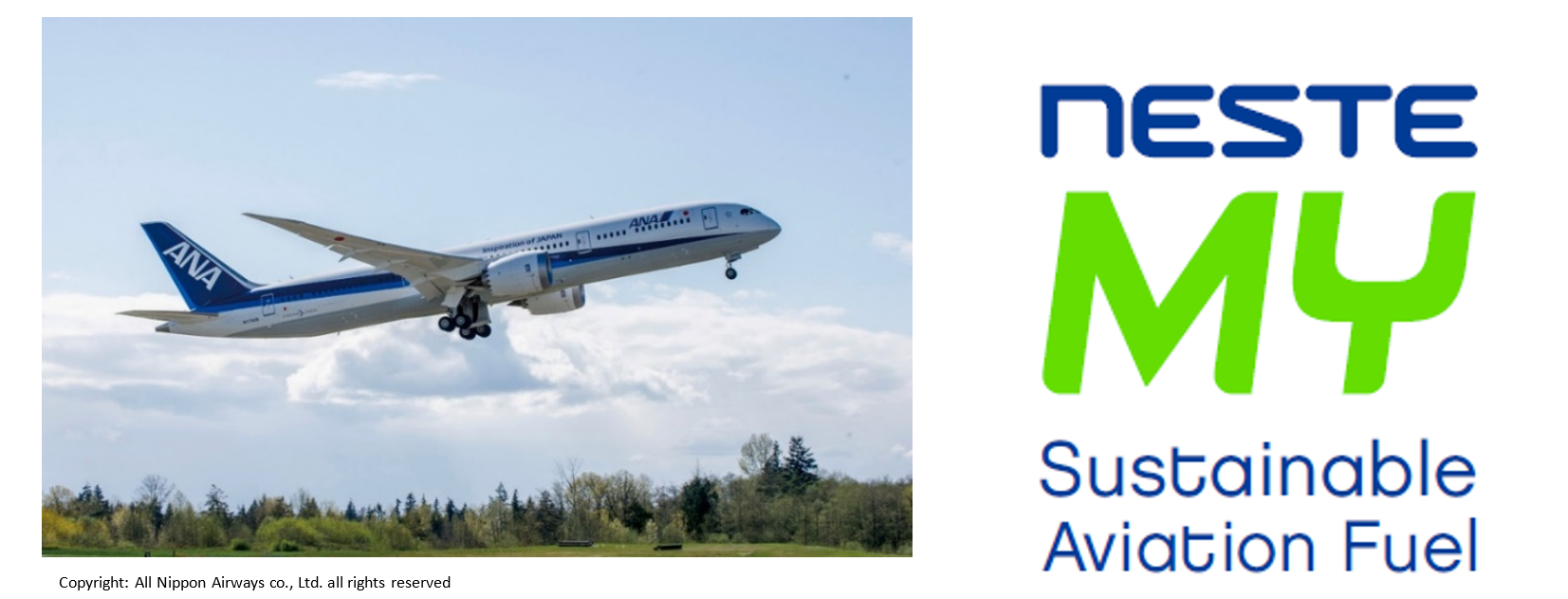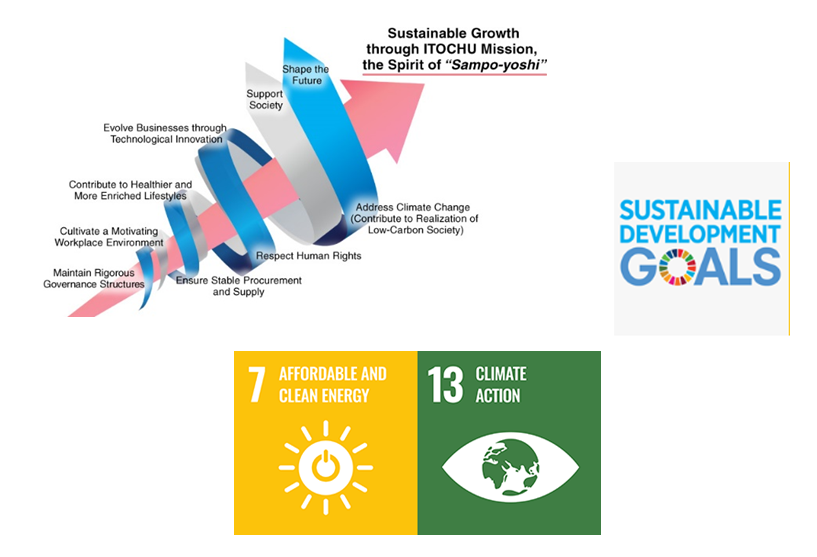ITOCHU Announces the Realization of the First Commercial Supply of Sustainable Aviation
Fuel in Japan in Cooperation with ANA and Neste in the Development of the Renewable Fuel Business in the Air Transport Field
October 26, 2020
ITOCHU Corporation (headquartered in Minato-ku, Tokyo; Yoshihisa Suzuki, President & COO; hereinafter “ITOCHU”) announced today that it has participated in a collaboration initiative, a first for Japan, in relation to the supply of sustainable aviation fuel (hereinafter “SAF”) in partnership with ALL NIPPON AIRWAYS CO., LTD. (headquartered in Minato-ku, Tokyo; Yuji Hirako, President & CEO; hereinafter “ANA”) and Neste Corporation (headquartered in Finland; Peter Vanacker, President and CEO; hereinafter “Neste”), world’s leading producer of renewable diesel and sustainable aviation fuel, developing chemical recycling to combat the plastic waste challenge. ITOCHU will take this opportunity to fully enter into the business of fuel from renewable resources (hereinafter “renewable fuel”) for the air transport field, and aims for a recycle-based low-carbon society and the reduction of greenhouse gas emissions.
|
|
Recently, trends related to climate change have attracted attention in every industry and quicker responses are requested. The introduction of SAF has moved forward, centered around Europe and the U.S., to implement an international initiative to reduce greenhouse gases (*1) in the aviation industry, and a future expansion to the global market is predicted. While aiming to create a SAF supply system within Japan, the guarantee of production volume and the creation of a supply chain from fuel production to the supply of fuel to aircraft have become urgent issues.
With this initiative, ITOCHU entered into a contract with Neste(*2) to import SAF for the Japanese domestic market. The creation of a sequential supply chain from SAF import and quality management to the delivery to airports was achieved through the cooperation between ANA, Neste, and ITOCHU.
The imported SAF will be used as fuel for aircraft operated by ANA at Haneda and Narita Airports. SAF makes it possible to reduce greenhouse gas emissions in the air transport field, and the commercial flight using SAF as fuel was the first to be operated in Japan, becoming a milestone towards the creation of a future SAF supply system in Japan and Asia. Neste MY Sustainable Aviation Fuel™ is made from sustainably sourced, renewable waste and residue raw materials. Typically, in its neat form and over the lifecycle, it can reduce up to 80% of greenhouse gas emissions compared to fossil jet fuel. The fuel gives an immediate solution for reducing the direct greenhouse gas emissions of flying. It can be used as a drop-in fuel with existing aircraft engines and airport infrastructure, requiring no extra investment. Prior to use, Neste MY Sustainable Aviation Fuel is blended with fossil jet fuel and is then certified to meet ASTM jet fuel specifications.
Based on the corporate mission of Sustainable Growth Through the Sampo Yoshi, ITOCHU has set Initiatives Against Climate Change (Contributing to a Low-carbon Society) as one of its important issues (materiality) on sustainability. The company is involved in the promotion of business activities to contribute towards a recycle-based low-carbon society and in the reduction of greenhouse gas emissions. Moving forward, ITOCHU will be involved in introducing and spreading renewable fuels in the Japanese and Asian markets and aims to resolve problems towards the realization of a sustainable recycle-based low-carbon society.
|
|
- *1Environmental measures in the aviation industry: CORSIA (Carbon Offsetting and Reduction Scheme for International Aviation), a scheme for international aviation growth without an increase in CO2 emissions from 2021, was adopted at the ICAO (International Civil Aviation Organization) general meeting in 2016
- *2Neste :Neste is the world’s leading producer of renewable diesel and sustainable aviation fuel, developing chemical recycling to combat the plastic waste challenge. Neste’s sustainable aviation fuel annual capacity is currently 100,000 tons. The fuel is currently produced in Porvoo. With the Singapore refinery expansion on the way, Neste will have the capacity to produce over 1 million tonnes of sustainable aviation fuel globally by 2023 and 1,5 million tons if the proposed Rotterdam expansion proceeds (feasibility study on-going).


